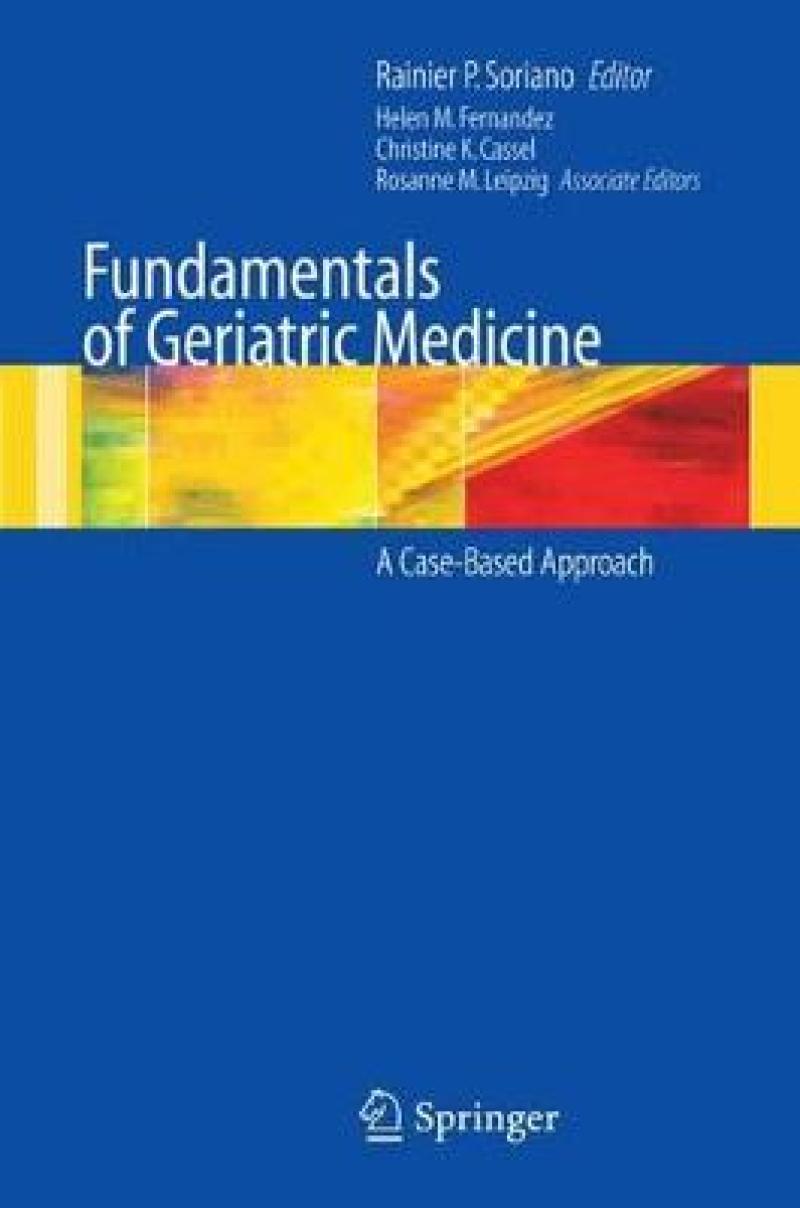Prior to the evolution of modern medicine, with its superabundance of diagnostic and therapeutic medical technology and the rise of the litigious society, the value of clinical skills was evident in both history taking and the physical examination. Even today, physicians can make a correct di- nosis solely by utilizing their clinical skills in about 90% of patient enco- ters. Furthermore, in the past physicians understood their role as a “psychologist” and were more apt to be familiar with the social context of their patients. House calls were common. The doctor was also a “placebo” who, at his best, inspired hope and probably sped recovery. Geriatricians use both clinical skills and take advantage of modern technology sparingly, for they know they are dealing with the most ch- lenging and frail of patients—older patients who so often present with multiple, complex, interacting behavioral, social, and physical problems. In contrast to medicine for young people, working with the older patient is much more demanding. Furthermore, the complex issue of societal at- tudes toward old people can come into play, speci? cally the physician’s need to deal with natural fears of aging, dependency, depression, dementia, and death. Ageism is the enemy of effective medical treatment. At its best, geriatrics exempli? es ways that medical care for all ages can become more humane, problem-oriented, and holistic.
Les mer
Prior to the evolution of modern medicine, with its superabundance of diagnostic and therapeutic medical technology and the rise of the litigious society, the value of clinical skills was evident in both history taking and the physical examination.
Les mer
Approach to the Older Adult Patient.- The Comprehensive Geriatric Assessment.- Geriatric Pharmacology and Drug Prescribing for Older Adults.- Sites of Care for Older Adults.- Medicare and Medicaid.- Psychosocial Influences on Health in Later Life.- Medicolegal Aspects of the Care of Older Adults.- Prevention and Chemoprophylaxis in the Elderly.- Vision and Hearing Impairments.- Exercise and Rehabilitation.- Nutrition.- The Older Surgical Patient.- Depression, Dementia, and Delirium.- Insomnia and Other Sleep Disorders.- Transient Ischemic Attack and Stroke.- Parkinson’s Disease and Related Disorders.- Dizziness and Syncope.- Osteoarthritis.- Osteoporosis.- Instability and Falls.- Hip Fractures.- Hypertension.- Cardiovascular and Peripheral Arterial Diseases.- Diabetes Mellitus.- Thyroid Disorders.- Anemia in the Elderly.- Benign Prostatic Hyperplasia.- Erectile Dysfunction.- Urinary Incontinence.- Pressure Ulcers.- Overview of Palliative Care and Non-Pain Symptom Management.- Principles of Pain Management.
Les mer
As the population ages, the unique needs of elderly patients are becoming increasingly important to practitioners of primary care, geriatric medicine, family medicine, and internal medicine. Physicians need a handy resource that presents the essentials of geriatric medicine and suggests simple ways to provide better care. Experts in geriatric medicine have streamlined Cassel’s classic text, Geriatric Medicine: An Evidence-Based Approach, Fourth Edition, into this concise guide filled with focused information and case-based instruction. This handbook addresses the complexity of disease prevention and presentation in elderly patients, as well as geriatric pharmacology. Medicare and Medicaid, and conditions common to elderly patients, including depression, dementia, and hypertension, are also covered. Numerous graphs and tables are included throughout the book to assist the reader in processing the information presented and incorporating it into clinical practice. This practical guide is an essential resource for all those caring for the elderly.
Les mer
From the reviews:
"Fundamentals of Geriatric Medicine comprehensively covers the broad field of geriatric medicine in 624 pages. … The bibliography at the end of each chapter is up to date … . The book is reasonably priced … . It provides clinically relevant information in an excellent, straightforward manner. It will be decidedly useful to medical students, residents, fellows, and primary care clinicians (physicians, nurse practitioners, and physician assistant)." (Aman Nanda, Journal of the American Mathematical Association, Vol. 298 (12), 2007)
"This is a practical educational companion to the fourth edition of Geriatric Medicine: An Evidence-Based Approach, by Christine K. Cassel ... . The layout is easy to read and concise. ... This is an excellent text for medical students and residents completing a rotation in geriatric medicine. Primary care Physicians ... will also find this book to be of great value." (Gregory J. Hanson, Mayo Clinic Proceedings, Vol. 82 (9), September, 2007)
Les mer
Useful guide based on the essentials from Cassel's Geriatric Medicine: An Evidence-Based Approach, 4/e Designed to enable primary care, family medicine, and internal medicine residents to quickly integrate concepts into clinical practice Case-based instructional approach presents a relevant overview of geriatric care Includes supplementary material: sn.pub/extras
Les mer
Produktdetaljer
ISBN
9780387323244
Publisert
2007-02-26
Utgiver
Vendor
Springer-Verlag New York Inc.
Høyde
235 mm
Bredde
155 mm
Aldersnivå
Professional/practitioner, P, 06
Språk
Product language
Engelsk
Format
Product format
Heftet
Redaktør
